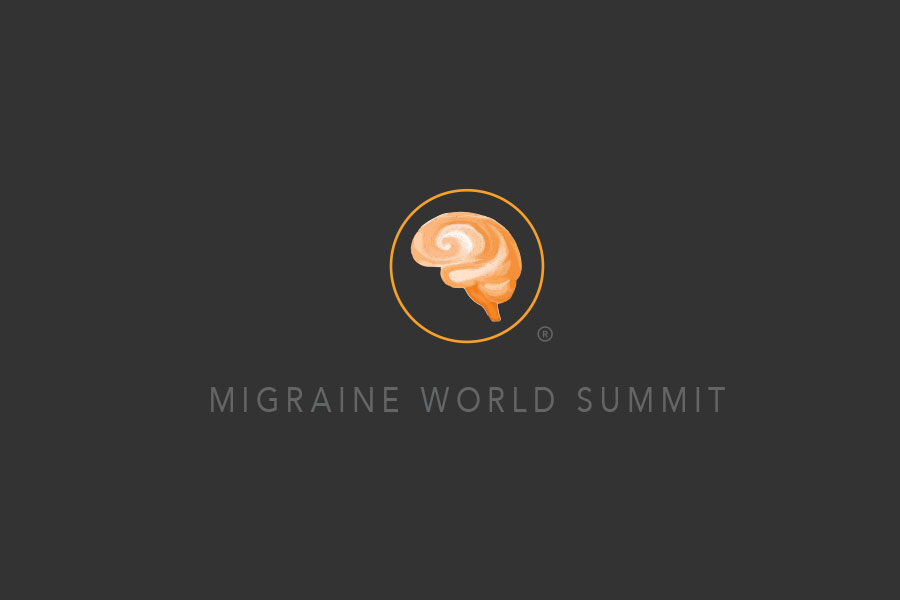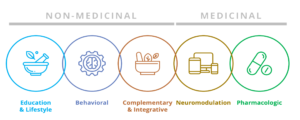Carl Cincinnato
This expert interview is from a recent interview at the Migraine World Summit. For more information visit: www.cumbremundialmigrana.com
Complaints of neck pain, stiffness, or discomfort are something that almost all of us can identify with. The challenge is knowing whether neck pain is a cause, a trigger, or a symptom of a migraine attack. To help us answer these questions is Dr. Andrew Charles. Dr. Charles is the Director of the Goldberg Migraine Program at UCLA and a professor of neurology at the David Geffen School of Medicine. He also serves on the board of directors for the American Headache Society.
Is neck pain a cause of migraine, a symptom of migraine, or both?
Dr. Charles: “So that’s a controversial issue: to what extent is it a cause versus
simply a symptom of migraine? And in my opinion, it really is a symptom of migraine in most cases rather than a cause. This is an important distinction because many people interpret the fact that the neck pain comes first as consistent with the idea that somehow their neck is what’s triggering the migraine attack. Whereas if you take a step back and think about neck pain as a symptom of migraine, along with all of the other symptoms that may occur, then that puts it in kind of a different context that’s important to understand.”
What is the relationship between cervicogenic headache and chronic neck pain with migraine?
Dr. Charles: “Cervicogenic headache is a headache associated with a structural problem in the cervical spine, but it’s pretty murky because of this issue of not necessarily acknowledging that neck pain is a symptom of migraine. And so in my view, a lot of what people call cervicogenic headache is, in fact, migraine. And in fact, the other thing I should have pointed out earlier is that some people really can experience neck pain almost exclusively without much in the way of headache, and it’s still migraine, and it responds to migraine therapies. So this is something that’s also very confusing. I think that the key distinguishing factor, in my view, is that migraine is most generally episodic, and so if you have these episodic attacks that include neck pain, that’s almost certainly migraine. Where it becomes a little less clear is when patients begin to develop chronic migraine that then may be associated with chronic neck pain. And that’s a phenomenon that also happens quite commonly, that people who have more and more frequent migraine then will experience neck pain that basically is persistent. But again, coming back to the key point from my perspective, is that if you effectively treat the migraine, the neck pain will go away regardless of if you do anything structurally regarding the neck. So the point is not just kind of a semantic one of calling it migraine but really focusing on migraine therapy as the way to treat the neck pain.”
What approaches may be helpful in addressing neck pain symptoms?
Dr. Charles: “Some people do respond quite well to occipital nerve injections with local anesthetics and/or including steroids. And so those injections, again, even though they’re often done for the diagnosis of occipital neuralgia, may actually be helpful for neck pain because of the way that those nerves originate in the neck. Local therapies applied to the neck, hot or cold, may be helpful for some patients. Some patients find that TENS units applied to the neck are interesting, as well. Those are peripheral approaches that may be useful. The interesting question comes around to — and I think you alluded to this before — the physiotherapy, physical therapy. And this is going to be controversial, but what we often find is that when people get focused on their neck, when they’re thinking about their neck all the time, when they’re constantly repositioning their neck, then that becomes actually counterproductive. And physical approaches are always worth thinking about. For many people, when they’re in the middle of an attack, actually neck massage makes them uncomfortable and maybe even worsen their attacks. But the question is, is neck strengthening and/or stretching actually helpful for people, in general, with migraine? I think it may be helpful for a subset. But in many patients, I recommend rather than fixating on the neck, do general flexibility, aerobic exercise — general increasing of physical activity — as a way of increasing mobility and reducing pain rather than just spending the time working specifically on the neck, itself.”
Watch the full interview to find out:
How common is neck pain in people with migraine?
Which comes first: neck pain or the migraine attack?
What is occipital neuralgia and its relationship with migraine?
Can someone have migraine with neck pain and without head pain?
What role can head and neck injuries play in migraine?
What precautions should people be aware of with treatments such as chiropractic manipulations?
What role can exercise play in treating neck pain?
What does emerging research suggest about the role of C1 nerve root characteristics in migraine?
When might neck pain be a sign of something serious other than migraine?
Watch Dr. Andrew Charles’s interview preview here or order it as part of the Migraine World Summit package from this page.
If you previously purchased the 2019 Migraine World Summit, you are all set to login to watch the full interview.
Posted in: Migraine Education





